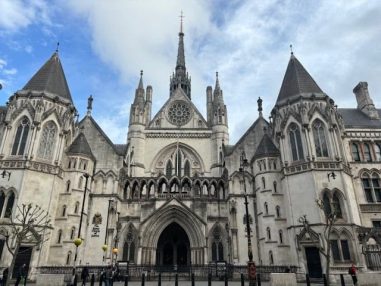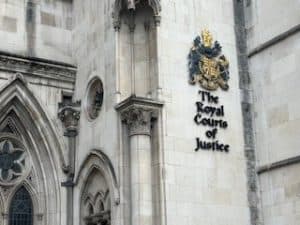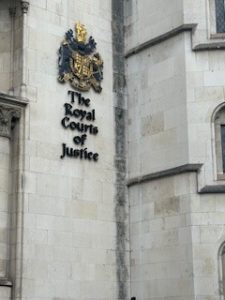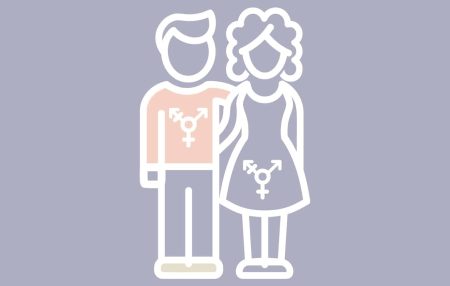30 September 2024
The case of Re G v Human Fertilisation & Embryology Authority & Anor [2024] EWHC 2453 (Fam) raises important legal and factual issues about posthumous conception that have not previously been considered by the English Court. This case, in which Louisa Ghevaert Associates was instructed by the applicant mother, concerned the storage and use of a young woman’s eggs, who tragically died in June 2023 within six months of receiving a breast cancer diagnosis. The case was brought by her mother who sought permission to use her deceased daughter’s 20 frozen eggs to have a baby through surrogacy. She had made arrangements to use donor sperm. She made submissions to Court that her daughter had asked her to do this in her last few days. The President of the Family Division, Sir Andrew McFarlane, ruled that she could not do so because there was a lack of explicit written consent from her daughter. However, this legal ruling is important because the President concluded for the first time that the law does allow a relative, such as a mother, to use a deceased’s frozen gametes (eggs or sperm) after their death to have a baby with a surrogate provided the deceased person has given written consent on a prescribed form.
In 2022, the Family Court in Ted Jennings’ case gave permission for him to use his deceased wife’s gametes because they were in fertility treatment at the time of her death. In this latest ruling, had the applicant been permitted to use her deceased daughter’s eggs, she would have been the genetic grandmother of the child and potentially their legal parent. However, the President made clear that the process under the Human Fertilisation and Embryology Act 1990 (HFEA 1990), regulations and guidance had to be followed and it was insufficient for a person to make this request orally to a relative.
Background
The young woman in this case was diagnosed with Stage 3 breast cancer in November 2022. Upon the advice of her medical team, who advised that chemotherapy would affect her fertility, she harvested and froze 20 eggs at the Assisted Conception Unit at Guy’s and St Thomas’ Hospital in December 2022. In freezing her eggs, she hoped to preserve these for future use in fertility treatment. Very sadly, the young woman’s health deteriorated quickly as her cancer spread to her liver and spine and she passed away six months later in June 2023 in her early 30’s.
Her mother gave evidence to the Court that in the last days before she passed away, her daughter asked her to use her frozen eggs in fertility treatment and surrogacy after her death. However, following her death her mother discovered that her daughter had not completed and signed the necessary consent forms produced by the Human Fertilisation and Embryology Authority (HFEA) at the Assisted Conception Unit at Guy’s and St Thomas’ Hospital to fulfil her wishes. Sadly, the young woman had not provided her lawful written signed consent for the posthumous storage and use of her frozen eggs by her mother in fertility treatment with donor sperm and surrogacy. Faced with this difficult situation, her mother made an application to the English Family Court for legal rulings that would enable the continued storage and posthumous use of her deceased daughter’s eggs in fertility treatment with donor sperm and surrogacy either at a UK licensed fertility clinic or in another country.
Images: the Royal Courts of Justice, Strand, London, England
Legal Ruling
In giving Judgment, the President of the Family Division, Sir Andrew McFarlane, ruled on the factual and legal issues of the case that it was not lawful for the deceased young woman’s 20 frozen eggs to be (1) stored and used by her mother in posthumous fertility treatment with donor sperm and surrogacy at a UK fertility clinic or (2) exported to the United States for posthumous storage and use by her mother in donor conception through surrogacy at a US fertility clinic.
The President noted that the applicant was an ‘upright individual’ who is ‘respected in her community’ and her recollection of her short conversations with her daughter was accepted by him as accurate. He was asked to determine that she had the right to become a parent under the European Convention on Human Rights, using her deceased daughter’s eggs. The President concluded that had her daughter given written and signed consent, on the relevant forms, that she wanted her eggs used posthumously so her mother could have a baby with a surrogate, using donor sperm, then the law allowed this to happen. However, he concluded that he could not go behind the legislation and that accordingly the applicant did not have a right to be a parent using her deceased daughter’s eggs. In giving his judgment, Sir Andrew noted that he had ‘great empathy’ for the applicant, but he could not give permission for her to use her daughter’s eggs because the law did not allow him to do so where her daughter had not given written consent when she was alive.
As such, for the first time, this important legal ruling establishes that it is possible in England and Wales, with effective written and signed consent, for a deceased person’s parent (not just a spouse or partner) to posthumously conceive using their child’s frozen gametes. This can be done by completing a range of consent forms produced by the Human Fertilisation and Embryology Authority (HFEA) at a UK licensed fertility clinic.
Louisa Ghevaert, Founder of Louisa Ghevaert Associates, acted for the Applicant in this case. The full legal judgment can be read here.
Images: the Royal Courts of Justice, Strand, London, England
Posthumous Conception Law
Fertility and genetic legacy can be lost at any moment through illness such as cancer, accident and death. This makes it important to protect fertility and genetic legacy and ensure that individual’s make informed decisions and provide effective lawful consent in writing with their signature about their wishes for the storage and use of their eggs, sperm and embryos during life, in treatment and after death.
To find out more about posthumous conception law in the UK click here.
Image: Louisa Ghevaert CEO & Founder Louisa Ghevaert Associates













